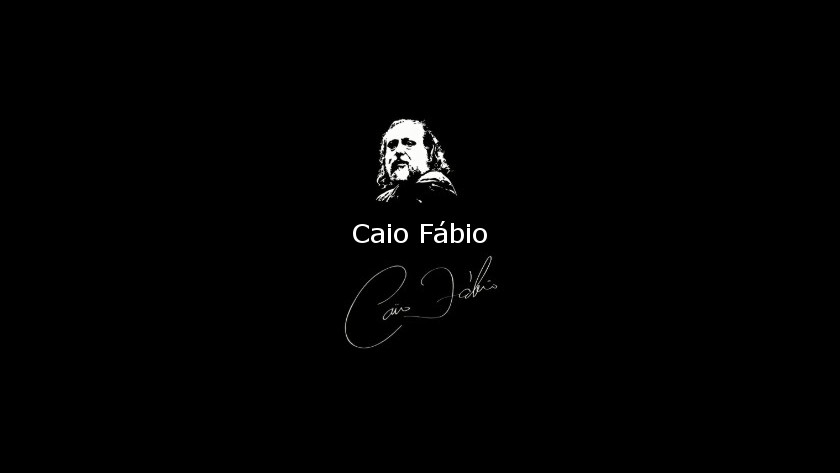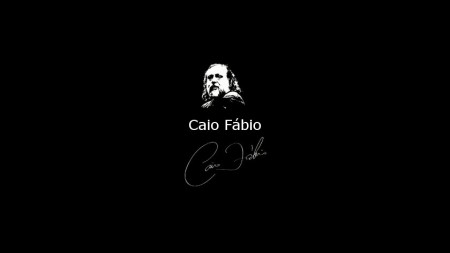
WHY DON’T YOU TALK ABOUT HOLINESS, PASTOR CAIO?
-----Original Message-----
From: CAIO, O QUE É SANTIDADE?
Sent: sexta-feira, 14 de maio de 2004 12:02
To: contato@caiofabio.com
Subject: CAIO, POR QUE VOCÊ NÃO FALA EM SANTIDADE?
From: CAIO, O QUE É SANTIDADE?
Sent: sexta-feira, 14 de maio de 2004 12:02
To: contato@caiofabio.com
Subject: CAIO, POR QUE VOCÊ NÃO FALA EM SANTIDADE?
Dear Caio,
Since long ago I’ve followed your ministry with great interest.
However, today I caught myself thinking, “Funny… Caio never talks about holiness!”
Well then? Was all the talk about holiness tied to the Law?
What about Pastors Cirillo, David Quinlan, Davi Silva etc—are they talking nonsense?
I’d really appreciate to get a reply.
Hugs,
Ricardo, 34, from São Paulo, a graduate in Philosophy, who has been trying to follow God in “real truth” for nine months now, avoiding pre-manufactured religious kits and supposedly Pentecostal foolishnesses.
___________________________________________
Reply:
Beloved friend in the Lord,
It is because of him that you are in Christ Jesus, who has become for us wisdom from God—that is, our righteousness, holiness and redemption. Therefore, as it is written: “Let him who boasts boast in the Lord”. 1
First, let me say that I don’t know what those dear brothers have been teaching. Therefore, this is not an answer to them, but to you, and I don’t want you or anybody else to read this as if I were addressing them.
This being clear, let me write to you and whoever else may be interested in my opinion about this topic.
Over 110 books I wrote were published. In dozens of them I deal with this subject with the same outlook I’ll show you here, although in an extremely summarized way. After all, this is just a letter, not a treaty.
Get your Bible concordance and look up the word “holy” (or “saint(s)”) in the New Testament, and you’ll see that holiness (or sanctification) doesn’t come about as or through human efforts, but as a new state in which you were put by God’s Grace, and this happens in two perspectives. The first one is related to what is already finished, that is, in Christ I am holy just as I am justified and saved. The second perspective is the one that causes the very growth of one’s being in God’s Grace to be holiness.
Therefore, holiness is healthiness and pacification of self in Grace according to the understanding you receive, by faith, that what matters is what you are in Christ—so that you can keep on being as you keep growing.
However, holiness is a nickname for the growth of the human conscience in Grace.
Have you ever noticed that Jesus never developed this topic into a topic?
And why is that? Didn’t He care about holiness?
Of course everything Jesus did and taught is the way of the holy. But He didn’t use the word “holiness” or “sanctification” in relation to the disciples. Why is that?
The way I see it, there’s one answer: Jesus didn’t see holiness as we do, religiously speaking. To Him, holiness was the path of love and mercy, not a
list of do’s and don’ts.
In Jesus’ eyes, a holy person—a saint—is he/she who doesn’t judge his/her neighbor; who gives his/her cloak to warm up his/her enemy who is cold; who doesn’t pass by on the other side when he/she sees a man fallen on the road. A saint is he/she who, out of love, gives his/her brothers and sisters water as if they were prophets or even Jesus Himself; who treats the different one and the stranger as if he/she were Jesus Himself. A saint is he/she who clothes the naked, shelters the orphan, houses the homeless, opens his/her soul to the famished, and doesn’t hide from his/her neighbor.
To Jesus, a holy person doesn’t talk about holiness; he/she talks about life. Yes—to Him, the holy one is he/she who believes, and seeks truth, righteousness and humbleness.
Holiness, in Jesus’ sight, is simplicity; it’s to be satisfied with “only one thing”; it’s gratitude and contentment.
And according to Jesus, the holy person is free to go wherever he/she wants, to love those who nobody loves, to break the Law in order to pull out … even an ox … from the pit it fell into, even if it’s the Sabbath day.
Our concept of holiness is pagan, pharisaic and full of self-righteousness. Yes—what we call holiness is just what the Pharisees taught as “being zealous of the law”.
Paul’s statement that I quoted above makes it clear that “in Christ” we were given wisdom, righteousness and holiness. And why? Paul answers, in order that “him who boasts boasts in the Lord”.
A holiness that doesn’t see itself as something finished on the Cross leads the would-be saint to the path of arrogance and neurosis.
Therefore, I don’t say the word “holiness” or “sanctification” for the same reason the Gospel doesn’t: The audience misunderstands it!
Holiness is maturity; is no longer taking offense at anything in life; is freedom to enjoy every thing that is permissible while having the discernment of telling apart what is beneficial and edifying.
Holiness is having clean eyes, thus considering all things as pure.
A holy person doesn’t usually speak of holiness, but of Grace and Mercy.
He/she who keeps on speaking of holiness as a personal achievement is, in general, speaking of his/her own distresses and struggles.
He/she who speaks of Grace speaks of holiness, because only in Grace we are saints and we are made holy.
However, as “the letter kills”, among the evangelicals, “holiness” or “sanctification” is synonymous with our pious conceit. And psychologically speaking, it’s synonymous with our neurotic attack of self-righteousness—the produce of a heart that couldn’t soothe itself in God’s Grace. It’s also synonymous with paranoia, which comes from a fearful soul that didn’t embrace the perfect love that casts out fear.
So, beloved friend, when you read me, mind you: By talking about God’s Grace according to the Gospel, I’m talking about everything that matters.
I can’t conceive one thing without the other. There’s no such a thing as a “Department of the Sanctified”. God’s Kingdom isn’t a bureaucracy, and God’s Grace acknowledges no boundaries in us.
In closing, I just want to add that the holy one shall live by faith; that is, not trusting in himself/herself, but in Grace; and every inner achievement that occurs in him/her isn’t due to his/her own merit, but it’s God’s Grace poured out on him/her. And he/she won’t announce such achievements, because if they are true, they’ll be noticed through the fruit of life, in love and mercy.
As long as holiness is a moral doctrine, it will be the greatest factory of religion neurotics, as these two thousand years of Christian history have shown us.
Let me say a word about the Pentecostal foolishnesses. In fact, the Pentecostal atmosphere is a huge catalyst of many psychological diseases, as it is an environment with no parameters, where whatever any nutty fellow feels, if said in the Spirit’s name, passes itself off as something from God, because hardly anyone minds the contents, but the clichés only.
Moreover, the leaders’ lack of commitment to the Word, as they’re always thirst after the latest thing, gives way for the circus-hospice foolishnesses to establish themselves as devotion.
However, not always the historical and reformed church environment has been much better. There’s a lot of legalism and judgment in the reformed atmosphere. It’s all more “elegant”, but the foolishnesses of vanities, power, doctrinal correctness, and the personal purity arrogance are all there. The results are devastating, not to the mind—as it is in the Pentecostal realm, from where most psychiatric interns come—, but to the soul/feeling, because their doctrines are very harmful to the soul, only on a level where appearances aren’t nutty although the feeling is cold, and sometimes even wicked.
I hope I’ve made myself clear.
My affection and encouragement go to you, that you can keep following the path of truth.
In Him, in Whom we are holy, although we’re conscious that it’s in Him alone,
Caio
____________________________________________________
From the original: “CAIO, POR QUE VOCÊ NÃO FALA EM SANTIDADE?”
Translated by F. R. Castelo Branco | May 2007
1 1 Corinthians 1:30-31 (NIV)

